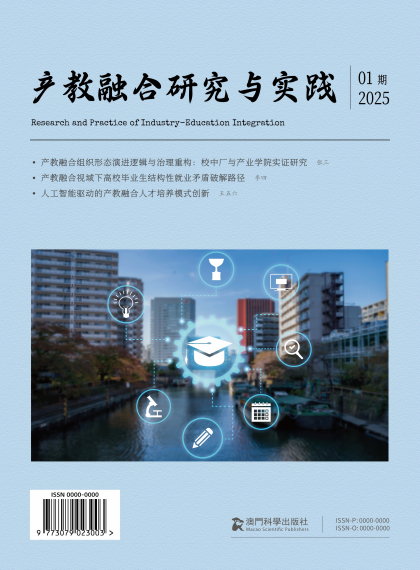摘 要:
本论文以“校企联盟共建”道路下的他办高校生态体系的构建为研究对象,选择青岛城市学院作为研究案例。本研究通过对青岛城市学院的实地考察与大量的文献资料研究,提出校企联盟共建生态体系的构建模式及其运行机制,和应对策略。研究结果表明,校企联盟共建有助于民办高校适应教育市场和劳动力市场的变化,扩大教学资源和社会资源利用,拓宽教学手段与实践途径。同时,能够提高高校的教学质量和学生就业率,有利于建立和谐的校企关系,推动校企共赢,对提升我国高等教育的竞争力有重要意义。然而,校企联盟共建在实践中也存在一些问题,如校企利益分配不均等现象。因此,需要各方协同作用,制定实施战略,合理分配利润,建设和谐、公正的校企合作关系,使校企联盟共建的生态体系更为健全。
关键词:校企联盟共建;民办高校;生态体系构建;教学资源利用
Abstract:
This paper focuses on the construction of the ecological system in private universities under the concept of "school-enterprise alliance co-construction," taking Qingdao City College as a case study. Through on-site investigations and extensive literature research on Qingdao City College, the study proposes a construction model and operational mechanism for the ecological system of the school-enterprise alliance, along with strategies to address challenges. The results indicate that the school-enterprise alliance co-construction helps private universities adapt to changes in the education market and labor market, expands the utilization of teaching and social resources, and broadens teaching methods and practical approaches. At the same time, it can improve the quality of education and the employment rate of students, foster harmonious school-enterprise relationships, promote win-win cooperation between schools and enterprises, and is of significant importance for enhancing the competitiveness of higher education in China. However, there are also some issues in practice, such as unequal distribution of interests between schools and enterprises. Therefore, collaboration among various parties is required to formulate and implement strategies, reasonably distribute profits, and build a harmonious and fair cooperative relationship to further enhance the ecological system of the school-enterprise alliance co-construction.
Keywords: School-enterprise alliance co-construction; Private universities; Ecological system construction; Utilization of teaching resources
--
